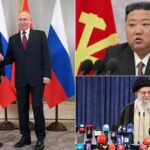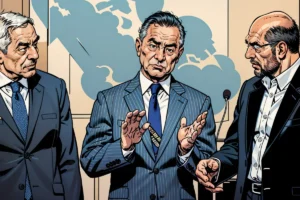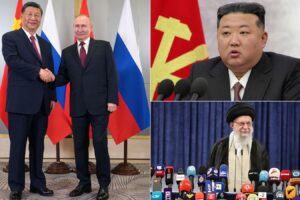Japan and South Korea are up against heavyweights Croatia and Brazil respectively in the last 16 at the World Cup. However, both Asian teams have come through tough groups and go into the knockout stage with confidence.
“If a team beats Spain and Germany, it can’t be a coincidence. I expect a great fight,” Croatia coach Zlatko Dalic said ahead of his team’s showdown against Japan on Monday.
Croatia’s coach is impressed by the performances the “Samurai Blue” have delivered so far in Qatar. Not least because Japan’s team initially trailed 1-0 in both games, but because then turned the games around within a few minutes. RB Leipzig’s Croatian defender Josko Gvardiol also warned: “I know the Japanese well, they are very dangerous. They fight until the end.”
In Japan, they are proud but modest: “We still have a lot to learn, but we are confident that Asian teams including Japan can beat the top teams in the world,” said head coach Hajime Moriyasu. “Also for Asia, the fact that we won against Germany and Spain, top countries in the world, gives us a lot of confidence.”
Japan and Croatia have already met twice at previous World Cups. At the 1998 tournament in France, the Croats won 1-0 thanks to a goal from Davor Suker in the group stage. Croatia went on to beat Germany in the quarterfinals and ended up finishing third. In 2006, the Croats and Japanese crossed paths again in the group stage, playing out a goalless draw. Even since then, Japanese football has made leaps in its development.
‘It’s not a miracle’
“I see a clear improvement,” agrees Daichi Kamada, who plays for Eintracht Frankfurt and won the Europa League with the club this year. “Many of our players are active in Europe, which is a great development. Currently, if you don’t play in Europe, it’s very hard to get into the World Cup squad,” he adds. In addition to Kamada, diminutive striker Ritsu Doan of Freiburg drew particular attention at the World Cup, scoring the all-important equalizers against Germany and Spain.
The confidence of Doan and his teammates is now stronger than ever. “Everyone says it’s a miracle, but it’s not,” said scorer Ao Tanaka, who plays for Fortuna Düsseldorf in Germany’s second tier and scored the winning goal against Spain. “We deserve this. We played more aggressively in the second half and won that way.” Midfielder Takefusa Kubo saw it similarly: “You are surprised? We are not! You have to take Asian soccer seriously.”
South Korea spark enthusiasm at home

That also rings true in the case of South Korea. With a dramatic late goal against Portugal, the “Taeguk Warriors” secured a 2-1 victory and moved up to second place in the Group H standings. Back home, this sparked a mix of enthusiasm and astonishment. “The players and the support staff have greatly impressed the people of this country with their fighting spirit and passion,” South Korean President Yoon Suk Yeol Yoon wrote in a congratulatory message on social media. He said he hoped that the potential of South Korean soccer would be shown beyond victory or defeat.
The team have impressively reached the last 16 which was met by the headline “Miracle of Qatar” in the “Dong-A Ilbo” newspaper after they left Uruguay and Ghana in their wake. This Korean team’s qualities have been known since they knocked Germany out in 2018 tournament in their final group game: disciplined, technically high quality with a willingness to run until the end.
The team has been one of the best and most consistent in Asia for decades. The only surprise is that despite their class, the South Koreans have not been able to win the Asian Cup more often. Their two continental titles date back to 1956 and 1960, but South Korea has been a permanent fixture at World Cups since 1986. Although they were often eliminated in the group stage at the finals, they finished third at their home World Cup in 2002 and reached the round of 16 in South Africa in 2010.
Son hoping for ‘another miracle’
However, there is no question of them being outsiders when they face Brazil, who hope to have Neymar back from an ankle injury. South Korea have a superstar of their own who is also no stranger to Germany: Heung-min Son, who has been playing for Tottenham Hotspur in the Premier League since 2015, joined Hamburg as a 16-year-old in 2008, before departing for Bayer Leverkusen in 2013 for two seasons.
Son is somewhat emblematic of the South Koreans’ “resurrection” in Qatar. After the 0-0 draw against Uruguay in the opener and the subsequent 3-2 defeat against Ghana, Son was criticized for his rather poor performances. He shed tears of joy after the last-gasp win over Uruguay, where he provided the assist for the winning goal. “This is great, but the tournament is not over yet,” Son said. “I hope we can pull off another miracle.”















